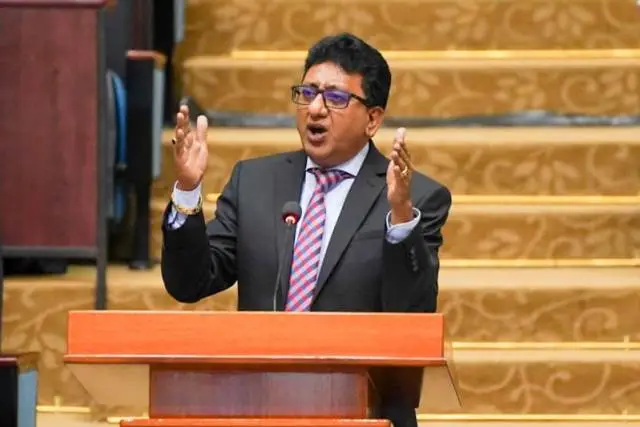
The National Assembly on Wednesday evening passed amendments to the Acquisition of Lands for Public Purposes Act, with the government’s Members of Parliament(MPs) using its majority to push the Bill through after several hours of debates.
The amendments, tabled by the government, address the procedures for acquiring private property for public purposes.
Attorney General and Minister of Legal Affairs, Anil Nandlall, SC, emphasized that these changes do not introduce any new powers but instead, enhance existing laws to protect citizens’ rights while streamlining development processes.
“This law that authorizes the state to compulsory acquire private properties has been with us for one century…so there is no new power that is being given to the government, the state or the minister in question to acquire public property,” Nandlall said during his address.
He highlighted that the amendments include provisions to ensure prompt payment for acquired lands. “It’s giving the state a power when the title is vested to take possession and why…because here you can possibly have one person who doesn’t accept the state’s offer of compensation hold up an entire public project…” Nandlall explained.
One significant change replaces the current system of issuing bonds with an advance payment of 80% in cash. “We are changing that to remove a bond and to allow the minister to pay the property owner 80% of what the government is offering… but in cash. How can that be wrong?” he questioned.
The Attorney General also revealed that after consultations with several opposition MPs, a compromise was reached to lodge payments with the registrar of the court instead of directly to the property owner. Nandlall noted that it was a fair suggestion and in the spirit of compromise, the opposition’s suggestion was implemented into the amendment.
Also, the amendments cater for arbitration, and in cases where there is a mortgage on the land that the state acquires, the state has to ensure they pay off the mortgage before acquiring the land. Thereby protecting third party interest.
Moreover, opposition MPs raised their concerns about the amendments, who advocated for a more comprehensive review of the legislation. MP Ganesh Mahipaul outlined the opposition’s call for the bill to be sent to a special select committee for thorough examination. “Our central and fundamental position remains that this bill should be sent to a special select committee for a more holistic and comprehensive examination,” he stated.
Mahipaul expressed concern that the amendments were reactionary, particularly in light of ongoing court cases in relation to land acquisitions for major infrastructure projects such as the new Demerara River Bridge.
“This approach is essential to modernize the existing acquisition of lands for public purposes act…which has become outdated in light of Guyana’s evolving socio-economic landscape,” he said.
He underscored the opposition’s concern of having the amendments done in a “piecemeal approach” and said this is not the answer with Guyana moving in a modern direction.
Mahipaul said, “As the country embarks on a path of unprecedented growth largely driven by wealth generated by the oil sector we are poised to engage in significant public infrastructure projects that will require land acquisition for public purposes.”
Further, Opposition MP Amanza Walton-Desir echoed these sentiments, stressing the need for progressive legislation that considers the emotional and social impacts of land acquisition.
Despite the opposition’s reservations, the government MPs, particularly Minister Nandlall insisted that the amendments were necessary to prevent undue delays in public projects while ensuring fair compensation to property owners. As Nandlall explained, “You have to develop a country. The interest of one… must bend and bow to the glory of the collective.”












